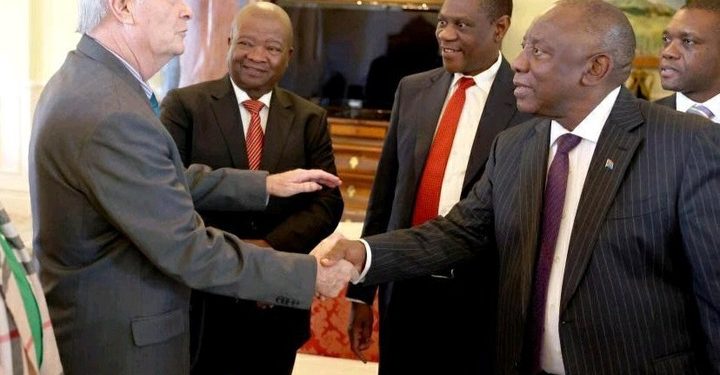In a recent statement, ANC Secretary General Fikile Mbalula shed light on the early phases of President Cyril Ramaphosa’s rise to power, emphasizing that his government’s actions are guided by the goals established at the ANC’s open conference. According to Mbalula, the directives Ramaphosa is currently executing were collectively decided upon by ANC members, providing a clear framework for the president’s leadership.
Mbalula’s remarks come amid increasing scrutiny of Ramaphosa’s administration, particularly regarding issues like service delivery and corruption. By pointing to the decisions made by the ANC as a whole, Mbalula underscores that Ramaphosa’s mandate is not solely his own but one that reflects the collective will of the party. The ANC conference, a pivotal event in the party’s political calendar, brings together members from across the country to elect leaders and chart the party’s course for the years ahead. Ramaphosa, as the chosen leader, is tasked with carrying out these directives.
[WATCH] President Ramaphosa was elected by a conference, and at that conference there was resolutions that were adopted. President is leading the implementation of those resolutions. #ANCAtWork #LetsDoMoreTogether pic.twitter.com/7O0YwZDC9h
— ANC SECRETARY GENERAL | Fikile Mbalula (@MbalulaFikile) September 26, 2024
While Mbalula’s comments affirm Ramaphosa’s adherence to the ANC’s vision, they also indirectly address critics who question the president’s ability to confront key challenges such as corruption and unemployment. Mbalula reminds both supporters and critics that Ramaphosa operates within the structure of the party’s established goals, not as an independent force. This suggests that the pace and nature of his actions are a reflection of the broader party agenda rather than personal shortcomings.
Despite this, public opinion remains divided. Some view Ramaphosa as a stabilizing figure in South African politics, focused on maintaining the ANC’s unity and strengthening national institutions. Others, however, express frustration with his cautious approach, believing it falls short of delivering the sweeping reforms they anticipated. Mbalula’s remarks may be an attempt to temper these frustrations, emphasizing that Ramaphosa’s leadership is shaped by the party’s collective choices.
As South Africa continues to grapple with significant challenges, Ramaphosa’s ability to implement the ANC’s objectives will play a key role in defining his legacy. With the 2024 elections on the horizon, the impact of his leadership will be closely watched.






















